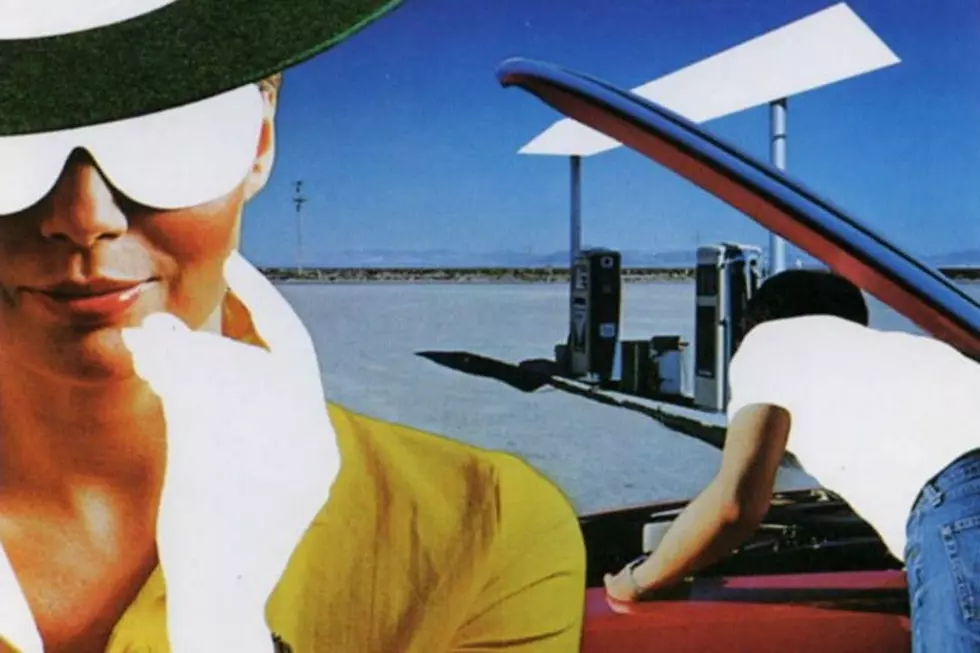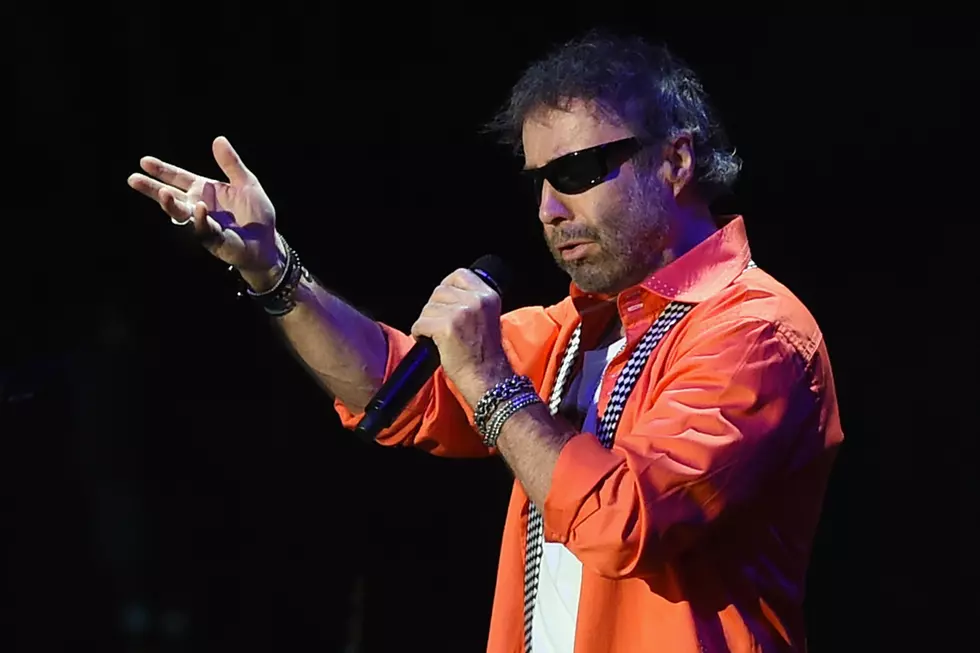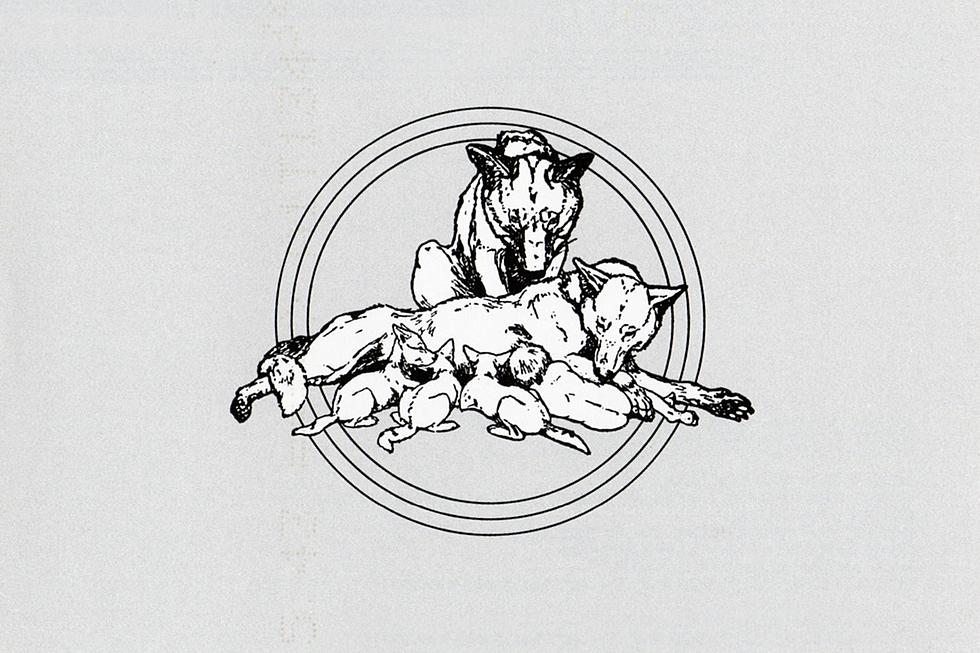
Why Bad Company Stayed the Course on ‘Desolation Angels’
The members of Bad Company maintained a grueling pace over the first few years of their career, releasing four albums (and touring steadily) between 1974 and 1977. By the time they finished recording the fourth LP, Burnin' Sky, they were exhausted and clearly in need of a break.
The band re-emerged on March 17, 1979 with their fifth LP, Desolation Angels, another solid 10-track slab of blues-influenced rock whose impressive chart performance proved that even among the rising tide of younger punk and New Wave acts, there was still a strong demand for Bad Company's signature sound.
"We agreed between ourselves that we needed some time off to get the thrill back. So that's what we did," drummer Simon Kirke said in an interview with Creem. "It was just getting a little bit routine and that can kill everything dead. You just get into a clock-in, clock-off frame of mind."
Bassist Boz Burrell told Melody Maker that he couldn't remember much about 1977. "We ended up shaking. Our bottle had gone and we were killing ourselves, so we knocked it on the head," he remembered. "We could have carried on working forever at that pace. But we took some time off and then did the new album down on a farm with Jon Anderson's gear. We turned an old barn into a studio. It was right under the flight path from Gatwick, and we had to do each take before another plane came over."
Perhaps not the most ideal circumstances for recording an album, but the songs didn't suffer. Desolation Angels hit No. 3 on the Billboard album chart and spun off one of the band's biggest hits with first single "Rock 'n' Roll Fantasy," which peaked at No. 13 – all without making concessions to changing trends.
"Everybody seems so shocked," Burrell said, laughing. "We went to Germany and they kept asking us, 'Why is your music still the same?' Because we don't want to play in 11/7 time to please a bunch of intellectuals. 'Why did you take time off?' Because we were feeling sick; do you mind?"
Singer Paul Rodgers knew what was at stake. "It was risky being out of the public eye, but it's worked for us rather than against us," he argued. "You've had all that punk and New Wave thing, and I think people have really got sick up to here with it. I know I have."
Listen to Bad Company Perform 'Rock 'n' Roll Fantasy'
What Bad Company continued to offer, in Rodgers' view, was dependably entertaining old-fashioned rock 'n' roll. "We're a group with a positive appeal, direct, straightforward and easy to understand," he argued. "Kids come and see us to get away from all the bullshit and the crap the media throws at you. Hell, man, of course I was a fan when I was a kid. That's what made me get into it, the whole rock 'n' roll fantasy. Life is so mundane, isn't it? It's great to hear a guitarist getting into it, and the rhythmic section blasting, even if it's all meaningless."
Unfortunately, that fantasy would soon be ruptured by a number of hard realities, including Rodgers' growing disenchantment with the rock-star lifestyle – and a pair of deaths in Bad Company's circle of friends that left the band members reeling.
"You had a couple of things happen there," Kirke told Goldmine. "One of them was [John] Lennon getting assassinated. The other was John [Bonham] dying, and the breakup of Led Zeppelin. And the subsequent demise of Swan Song Records. Our manager also had a drug problem, which he sought help with. And he's now clean and sober, and he's a great guy. But, in those days, he was unreachable. I was struggling with drink, and it was all a bit of a bloody mess. And it ended in us leaving Peter Grant. Individually, the members of Zeppelin left, Paul left. In the end it was like a great, big house of cards that came down."
Although the original Bad Company lineup managed to soldier on for another album (1982's Rough Diamonds), Rodgers had moved on to form the Firm with ex-Zeppelin guitarist Jimmy Page by the mid-'80s. That left his former bandmates to recruit a series of new singers, with varying degrees of success. The original lineup finally found its way back together in the late-'90s for a handful of new songs and a series of live dates, beginning an era of periodic touring that has continued past Burrell's fatal heart attack in 2006.
Through all those ups and downs, the fans haven't forgotten Bad Company's classic hits – and the band members never forgot they'd created something special. "We were a good band," mused Kirke during his conversation with Goldmine. "We got to be one of the best bands that were ever formed, I think."
See Bad Company Among Rock’s 100 Most Underrated Albums
More From KYBB-FM / B102.7










